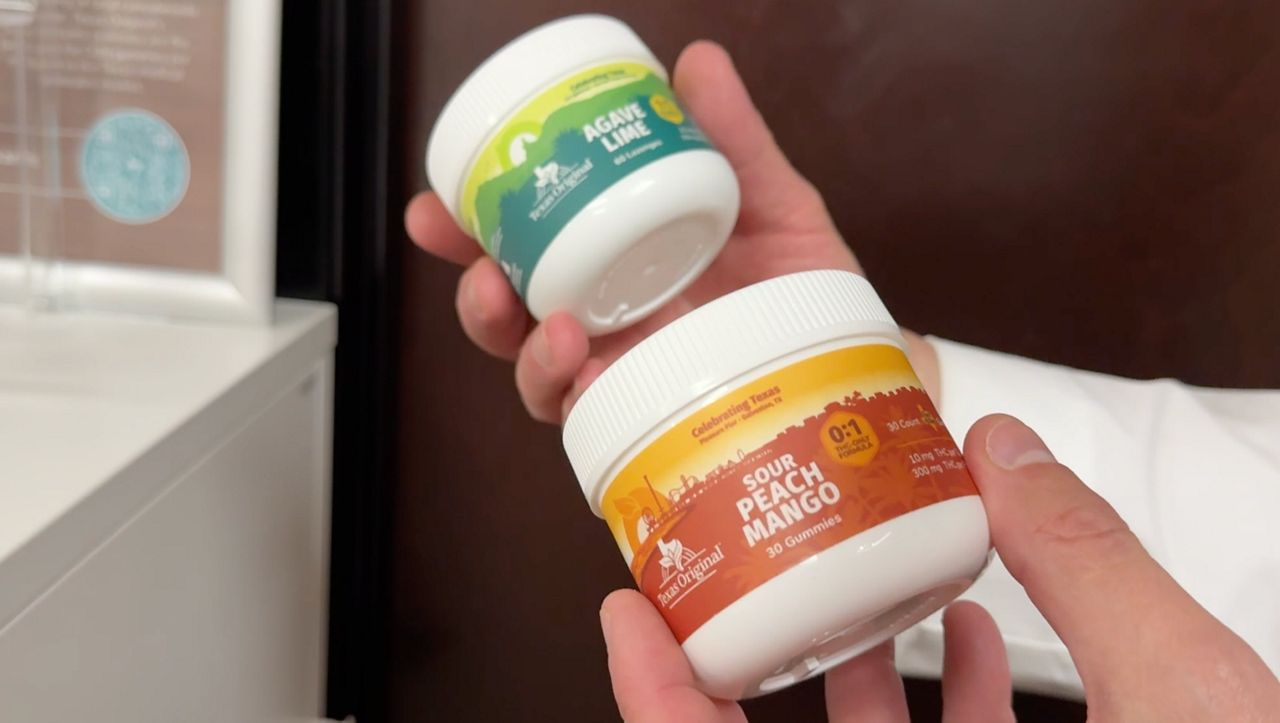[[{“value”:”
AUSTIN, Texas — All eyes are on the Texas Compassionate Use Program (TCUP) after the state House voted to ban all consumable THC hemp products on Wednesday night.
TCUP is the state’s medical marijuana program, which is overseen by the Texas Department of Public Safety (DPS). TCUP was passed in 2015, but with the emergence of high THC products after the 2018 Farm Bill legalized the cultivation and production of hemp, lawmakers voted to ban products containing any THC through Senate Bill 3.
If the THC ban is signed into law, TCUP will be the only program in the state where people legally can access THC products. Lawmakers are working on getting House Bill 46, a bill aimed at expanding TCUP, signed into law.
But with SB 3 moving forward, the future of cannabis access is in jeopardy, leaving many to wonder what will happen to medical marijuana.
“Is it guaranteed that the TCUP is going to pass in the Senate?” asked state Rep. Penny Morales Shaw, D-Houston.
HB 46 would allow for 12 new dispensary organization licenses across the state. Currently, there are only three licenses serving over 112,000 patients statewide. The bill would also permit satellite locations for patients to have easier access, and it would also increase the number of conditions eligible to participate in the program.
People with glaucoma and degenerative disc disease are among the conditions that the proposed bill would allow access to medical marijuana, as well as providing medical assistance to honorably discharged veterans. One provision, however, would expand the patient registry significantly — “a condition that causes chronic pain for which a physician would otherwise prescribe an opioid.”
Some community members during the state House Committee on State Affairs meeting on May 19 said this language is crucial and beneficial.
“Texans deserve medical freedom to choose a safer alternative instead of harmful pharmaceuticals that our bodies do not need,” said Karen Reeves, representing CenTex Community Outreach.
Others in the state, however, say this provision opens the door for people to take advantage of TCUP.
Cindi Castilla, president of the Texas Eagle Forum, takes it one step further and says that chronic pain is often faked.
“We know college kids that have gone off to other states and basically got addicted to marijuana through pain,” she said.
One doctor, who has been an advisor on marijuana policy, has his own concerns.
Dr. Robert Marks is the founder and CEO of the Diagnostic Pain Center, a pain management clinic in Austin. Marks has been studying cannabis since his fellowship in Lubbock in 2012, even joining the agency overseeing the statewide program.
“I’m a member of the Texas Compassionate Use Program work group, part of the Department of Public Safety, where we helped to advise on the implementation of medical cannabis law,” said Marks.
Marks also works with the licensed medical dispensaries in the state as well.
He has always been an advocate for expanding TCUP. However, to include chronic pain in the program, he says different verbiage like “the next safest viable option” may be more appropriate.
“It’ll be helpful, I think, because it will stop people from being scared to being in the program, but I’m not positive chronic pain is the end-all-be-all to be able to say that that is what is going to build up the program,” Marks said.
Marks also raises the concern that he doesn’t want pain management offices like his to be overwhelmed by patients simply seeking cannabis. He also raises the concern that with the current language in place, if cannabis is not the right treatment for a particular patient, it may open the door for riskier alternatives.
“Just in case people start looking at that and say, ‘well, if it doesn’t work, do I have to prescribe an opioid?’” he said. “Because there’s a lot of things I wouldn’t prescribe an opioid [for] even though somebody else might.”
HB 46 is currently pending, but with the house passing SB 3, more pressure is on lawmakers to get the bill through.
However, some are looking at the Senate version of the bill, Senate Bill 1505, which is a more modest expansion plan of TCUP, only allowing six new medical dispensary licenses and no additional conditions.
“}]] If the THC ban is signed into law, TCUP will be the only program in the state where people legally can access THC products. Read More


